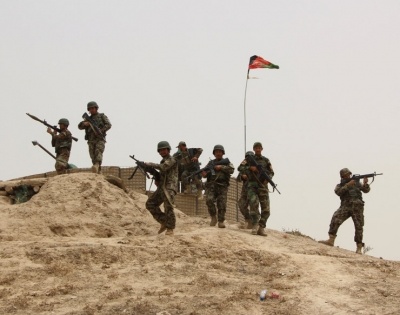Afghan Taliban unlikely to win over Russia with its charm offensive
By IANS | Published: July 9, 2021 06:15 PM2021-07-09T18:15:04+5:302021-07-09T18:20:33+5:30
New Delhi, July 9: The Taliban has launched a feverish diplomatic offensive-with Russia and Eurasia as its immediate focus. ...

Afghan Taliban unlikely to win over Russia with its charm offensive
New Delhi, July 9: The Taliban has launched a feverish diplomatic offensive-with Russia and Eurasia as its immediate focus. The charm offensive of the militant group is multi-pronged. On Thursday while a Taliban negotiating team was talking to the representatives of the Afghan government for re-starting stalled the Intra-Afghan talks, another four, led by Sheikh Shahabuddin Delawar met Zamir Kabulov, Russia's special envoy to Afghanistan, in Moscow on Thursday. Its outreach was laced with a message Taliban does not pose a threat to Russia or its Central Asian allies. According to Russian news agency TASS, Kabulov told the Taliban delegation that it was important "to prevent them from spreading beyond the country's borders".
The Taliban's assurance to Russia on Central Asia is significant. Russia has historically considered Central Asia as its backyard. Consequently, it opposes any excessive foreign interference in this region, whether it comes from China, Turkey, or in this case by the Taliban, which has been traditionally backed by Pakistan, China's top ally.
Amid the US withdrawal, the Taliban is aggressively pushing its fighters in the northern region of Afghanistan forcing hundreds of Afghan soldiers to flee across the border into Tajikistan, which hosts a Russian military base. Tajikistan in turn called up 20,000 military reservists to strengthen its southern border with Afghanistan. To keep foreign interference at bay, Russia has positioned one of its motorised division in Tajikistan.
Naturally, Russia has expressed concern as the Taliban surge could destabilize the ex-Soviet Central Asian nations north of Afghanistan.
The Taliban spokesperson Suhail Shaheen, who is a part of the delegation said that "taking Afghanistan by military force is not our policy, our policy is to find a political solution to the Afghan issue which is continuing in Doha." "We confirmed our commitment to a political solution here in Moscow once more," he observed.
Russia has hosted several rounds of talks on Afghanistan, most recently in March, that involved the Taliban - even though Russia has labelled them a terrorist organization. Russia has expressed readiness to support Central Asian nations that are part of the Moscow-dominated Collective Security Treaty Organization (CSTO).
The international community is concerned about the Taliban making a rapid advance in Afghanistan, which could once again become a breeding ground for other terrorist groups and organisations like Daesh (commonly known as Islamic State) and Al-Qaeda.
Sharing similar concerns, China views the deteriorating situation as a catalyst to strengthen the East Turkestan Islamic Movement (ETIM), a Uyghur separatist organization, fearing security implications of a Taliban regime.
A recent UNSC report confirms the presence of more than 500 ETIM fighters in different parts of northern Afghanistan, including Badakhshan, Kunduz, and Takhar provinces that connect China's Xinjiang province via a narrow Wakhan Corridor.
China has been very wary of Taliban's connections with Xinjiang's Uyghur militant groups affiliated with al Qaeda but the Taliban has been assured China and its concerns. With the NATO troop withdrawal nearly complete, China's clout in the region is growing, in part through Beijing's strategic relationship with the Taliban's main backer, Pakistan.
At present, under the President Ghani's administration, China has been providing for the first time to provide military assistance to Afghanistan, although the aid was mostly non-lethal. On the other hand, Taliban representatives have paid several visits to China and were received there with diplomatic protocol. China is hedging its bets in Afghanistan, as it often does in other countries' internal conflicts. However, there is also a view that China has cut out a deal with Pakistan and the Taliban, which will pivot Kabul towards China, including Afghanistan's integration in the Beijing led Belt and Road Initiative (BRI).
So far, the Taliban has established good relations with Iran, Russia, China, Turkey and other countries. Taliban has been trying to explain to countries including those who are wary of its past that once in power, the Taliban won't allow Afghanistan soil to be used against any country but most of them don't trust Taliban. Afghans are scared of the thoughts of the returns of the Taliban.
On Thursday when asked, the US president Joe Biden answered "I do not trust the Taliban," adding, "but I trust the capacity of the Afghan military."
Disclaimer: This post has been auto-published from an agency feed without any modifications to the text and has not been reviewed by an editor
Open in app